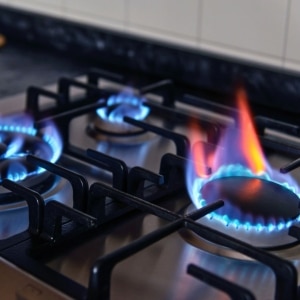What is Carbon Monoxide Poisoning?
Carbon Monoxide (CO) is a toxic gas produced by the incomplete burning of fuels, such as natural gas, propane, gasoline, and wood. Common household appliances and equipment that can generate CO include:
- Furnaces and boilers
- Water heaters
- Gas stoves and ovens
- Fireplaces
- Generators
- Charcoal grills
When inhaled, CO enters the bloodstream and binds to hemoglobin, the protein in red blood cells responsible for carrying oxygen throughout the body. This disrupts the oxygen delivery process, depriving vital organs like the brain, heart, and lungs of essential oxygen, leading to potential organ damage or even death.
Symptoms of CO Poisoning
The symptoms of CO poisoning can vary depending on the severity and duration of exposure. Symptoms can often resemble flu symptoms, making early detection challenging. Here are some key warning signs:
- Headache is the most common symptom, often described as a throbbing or pulsating pain.
- Nausea and vomiting: Feeling nauseous or experiencing vomiting can be another indicator.
- Dizziness and lightheadedness: CO exposure can cause dizziness, disorientation, and confusion.
- Fatigue and weakness: Feeling unusually tired or weak can indicate CO poisoning.
- Shortness of breath: Difficulty breathing can be a severe symptom and requires immediate medical attention.
Understanding and Preventing Carbon Monoxide Poisoning
Carbon monoxide poisoning is a severe threat to many homes and workplaces across the U.S. Often referred to as the “silent killer” due to its colorless, odorless, and tasteless nature, CO can be extremely dangerous if not detected and addressed promptly.
If you suspect CO poisoning
- Evacuate the affected area immediately: Open windows and doors to ventilate the space and allow fresh air to circulate.
- Seek fresh air: Move everyone outdoors to breathe fresh air.
- Call 911 or your local emergency number: Get immediate medical attention, even if symptoms seem mild.
- Do not re-enter the affected area: Wait for emergency personnel to arrive and assess the situation.
Preventing CO Poisoning
Taking proactive measures to prevent CO poisoning is crucial to ensure your family’s safety. Here are some essential steps you can take:
- Install CO detectors: Every home should have working CO detectors placed outside each sleeping area and on every floor, including the basement. Ensure they are regularly tested and the batteries are replaced every six months.
- Maintain your appliances: Have your furnace, water heater, and other fuel-burning appliances inspected and serviced annually by a qualified technician.
- Proper ventilation: Always ensure adequate ventilation when using appliances that burn fuel, such as gas stoves or fireplaces. Never use grills or generators indoors.
- Never leave a running car in an attached garage: Exhaust fumes can build up and seep into the house.


